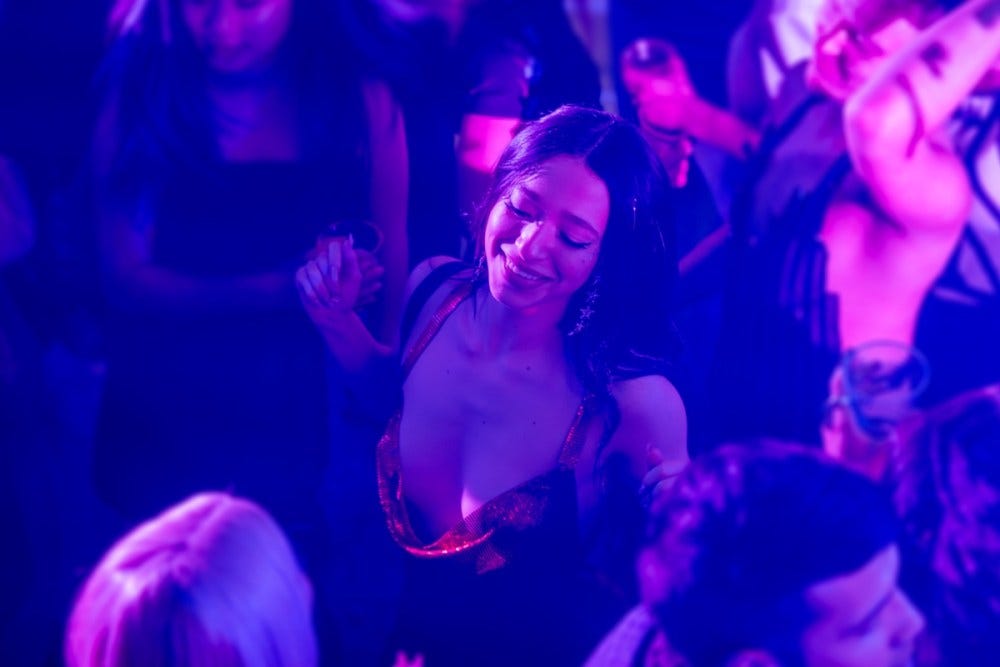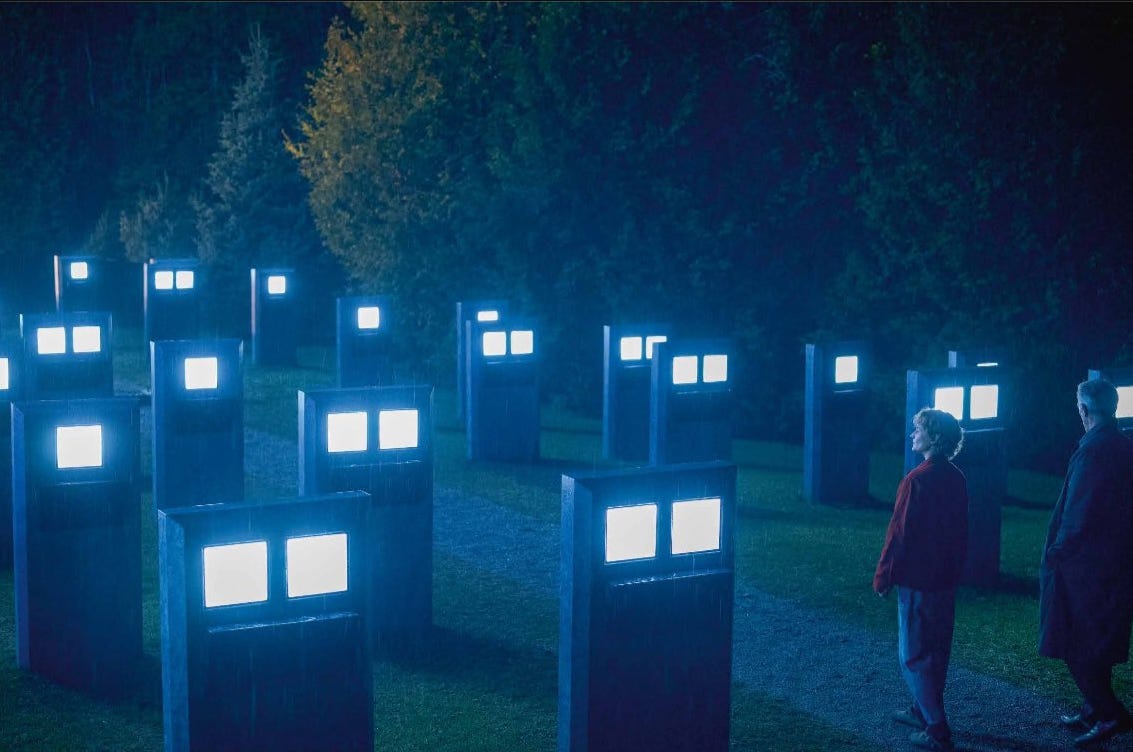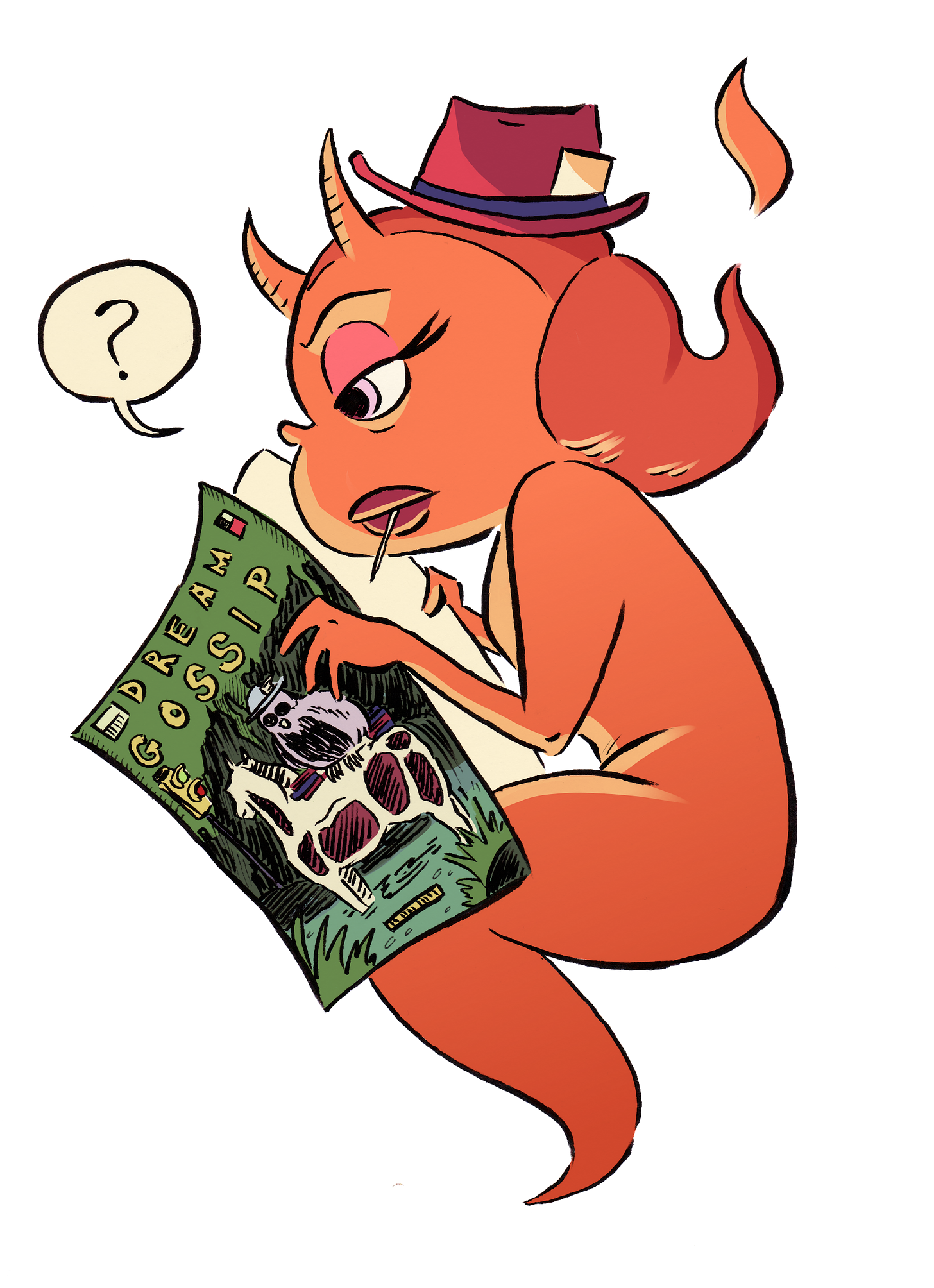TIFF Round-Up 🎥 Part 2
More insights into this year's Festival of Festivals by In the Mood's contributors...
We couldn’t fit all of our feelings about TIFF into one newsletter, so below is part two of our contributors’ unfiltered thoughts, observations, and opinions on the city’s film fortnight 🍿 And ICYMI: here’s part one!
Nirris Nagendrarajah
I never intended to be a critic but, over time, hobbies become habits—and habits addictions—and here I am. “I’ve added you to the list,” the press agent wrote back in regards to a press screening of Anora a few days before the festival. On the one hand, it felt like a fluke, like I was bound to be found out to be a fraud, that, at the last minute, they would decide I wasn’t suitable to let in; but, on the other, I had the sensation I was being given access to what happens behind-the-scenes, closer to the heart of the media industry, to be part of it: I, who used to look down on the critics who didn’t view films along with the public. But I’m not afraid of being a hypocrite, of changing my mind. There I would be, sitting amongst the professionals, now one of them.
***
When we first meet Anora—who goes by Ani—she hustles to make a living, already a master in her craft, to the point where it has become a stale routine. What gets her access to Ivan—a Peter Pan figure who is the son of a Russian arms dealer—is a foreign language: Russian, which, like many second-generation immigrants, she understands but cannot speak: her mind, not her tongue can interpret, meaning that she's split in two within: the Old World (evoked by the mention of her grandmother) and then the New World (her Brooklyn accent).
There’s a scene early on in the film when Ani stands before a second-floor window of Ivan’s abode in a satin blue dress, taking in the dazzling view of the Atlantic Ocean.
Ever since she’s arrived at his place—which, it later turns out, is not his place—she’s been in awe by the scale of things, the extravagance which have been part of his life from birth. There she is, looking at the landscape by the window, remarking upon the beauty of its view; but he dismisses it and turns it around to try to be charming and say that she is the view: his view.
She turns away from the window, the world to turn towards him, a lure disguised as a dream.
Towards the end of the film, after all is said and done, there is a return to that wide window, when Ani, standing in a tank top and underwear after a shower, appears before it and we can see that a change has taken place both visually—it’s snowing—but also that there is no one to gazing at her. There is a price that one must pay for any view in a world that seeks to destroy you.
Her solemnity reminded me of a heartbreaking line from Liv Ullmann’s memoir Changing about her time in Hollywood: “I’ve seen the reverse side of something that glitters.”
Ani, was it worth it?
***
Immediately after the credits rolled, a film bro sitting in my row turned to his friend and said: “I think that’s the best movie I saw all year.” Anora suffers from the fact of how easy it is to dissect—all of the situations the characters are placed in are pulled from the American tradition, to the tropes of the picaresque—and that ease makes it easy to rally behind and champion with praise, mistaking the screenplay as a mark of genius. It has more to do with Tom Sawyer than it does the films of Martin Scorsese. What Anora succeeded in doing was making me hungry to encounter a film that actually glitters.
Nirris Nagendrarajah is a Toronto-based fiction writer and film critic whose work has most recently appeared in Cha: An Asian Literary Journal, paloma magazine and Fête Chinoise.
Alexander Mooney
After burying my grandmother back in July, it felt strangely fitting that my TIFF lineup this fall would be permeated by bodies entering and exiting the ground. A funerary tone set in as soon as I began (late, per usual) with the tersely expressive and drolly humane On Becoming a Guinea Fowl. Shot through with quotidian displays of repression, resentment, denial, and self-loathing, Rungano Nyoni’s sophomore feature charts the tensions that arise within a Zambian family when its headstrong women gather to lay a looming patriarch—and the chasmic impressions he left on members of their flock—to rest, which proves easier said than done.
Two films concerned, conversely, with the exhumation of relatives were Emilia Pérez—a hideous, and unrepentantly French, movie that wears its Mexican setting like a cheap skin-suit—and the lulling, dissociative queer tragedy Viet and Nam, which could not be more attuned to its semi-eponymous country’s landscape. Where the former sees a cartel boss orchestrate the recovery of missing persons lost to drug-related crimes, the latter is undergirded by the decades-long search for one of its doomed lovers’ long-dead father, which is devastatingly woven into a larger portrait of national trauma.
Decidedly zanier offerings obsessed with disinterment came from Canadian veterans Guy Maddin (with co-conspirators Galen and Evan Johnson) and the one and only David Cronenberg. Rumours gleefully unravels the respective composures of fictionalized G7 summit leaders, whose shared reality comes apart at the seams as mummified corpses from the ancient world begin to wander the surrounding forests. It’s a deeply unserious movie that brings a serious amount of craft to the table, and it’d be tempting to say the same thing about The Shrouds. In this loopy thriller-fication of the gore meister's intense physical grief in the wake of his wife’s death, a self-insert’s GraveTech company invades the privacy of rotting corpses to ease the minds of those unable to detach from their loved ones’ material presence. As the man contemplates an affair with his sister-in-law (both twin sisters are played with eerie, stilted poise by Diane Kruger), a plethora of shady forces emerge from the woodwork. Among them is the A.I. assistant Hunny, also played by Kruger, whose approximation of the deceased haunts the proceedings in triplicate.
Two films that approach death in ways entirely unfixed from the corporeal are Measures for a Funeral and Presence. The former follows a young academic (the deservedly rising star Deragh Campbell) in her archival pursuit of Canadian violinist Kathleen Parlow’s undying spirit. Her globetrotting research morphs into a profound personal obsession as details of her musically-inclined family bubble to the surface, all of it building toward a (literally) show-stopping orchestral performance, which left me a tearful wreck. Where Measures’ carefully constructed soundtrack made me more attentive than ever to the implications of point-of-audition, Presence explores those pertaining to point-of-view. A series of startling, malevolent vignettes that watch a suburban family implode through the eyes of the ghost that haunts their new home, Soderbergh’s latest experiment (scribed by the underappreciated David Koepp) probes the limits and derangements of human behaviour with such a strange balance between breathless fervor and sinister ambivalence that its flimsy construction is eclipsed by sheer tonal audacity.
Death casts long, all-encompassing shadows over The End and Grand Tour as well; the former stages a strained, perplexing musical in a salt mine post-apocalypse, and the latter sends a pair of self-centered, and self-defeating, Western outsiders on a protracted chase through the jungles and cities of colonial Asia. Both films watch self-deluded characters move with anguished futility through barren worlds of their own making, but Grand Tour injects (and complicates) fragments of life as its locales become unglued from time and history. Continuing on the path back to the land of the living, All We Imagine as Light and By the Stream are filled with the kind of joie-de-ciné that only a newcomer (the fabulously talented aesthetician Payal Kapadia) and an old pro (the prolific Hong Sang-soo) could respectively achieve. They rounded out my festival so beautifully that I can’t resent their disruptions of the pattern I’d spent the past week carefully constructing.
Alexander Mooney is a Toronto-based writer and programmer.
Cleo Sood
I was 21 when I decided who I wanted to be, and I attempted to do TIFF for the first time. Now, I am in my 23rd year as TIFF wraps up its 49th edition, and my experience of TIFF is still nothing more than a mere attempt. I have no press pass, no money, and no invite to exclusive insider parties. I’m barely even clued into what titles are screening. Still, I start every festival season eager to try and see something, meet someone, do something. I end up with a few early morning tickets to mid-list movies, and networking with the guy working the shawarma food truck. We’re going to exchange screenplays.
See Something:
In my quest to participate, I’ll graciously accept free tickets to anything. This is how I wound up watching Sean Ellis’ The Cut—a hypermasculine eating disorder film about a boxer struggling to make weight for his comeback fight—with movie host/programmer/drag queen/overall human slay, Weird Alice.
The thing about free tickets is that they’re usually a last-minute offering, which means you’ll probably rush through the city, going from your babysitting job in Davisville to the Royal Alexandra Theatre, making it to your seat just in time to catch a glimpse of Orlando Bloom before the lights turn off, and the cheesy TIFF trailers begin.
Film people are charming communicators. Upon delivering a scathing, mean-spirited rant disguised as a review, they'll say, “But I’m glad I saw it!” This sentiment rings especially true when you’ve received a free ticket.
I drifted into a light snooze halfway through The Cut. When I woke up, Orlando Raging Bull Bloom was still hunched over, puking into a toilet bowl, trying to cut, or whatever. Boring bulimic boxers don't do it for Weird Alice either who left the theatre without a word. During the Q&A, I received a text from them saying, “At Hooters. Join us?”
Meet Someone:
At the Bruce LaBruce TIFF event, audio aficionados fraternized with eccentric cinephiles; I observed as party girls flirted with film bros, and couldn’t contain my grin when Shaleel explained they’re “not really into movies,” but “love a good soundtrack.”
Who needs screenings when last night was a movie at Bruce LaBruce’s TIFF party?
I’ve never seen Bovine so packed. And while there was barely enough space to move an elbow, let alone throw your hands up in the air, people seemed satisfied, swaying to the music. Our eyes were directed away from the typical tedium of turntablism; instead, everyone on the dance floor directed their gaze toward the fetish performance artists on stage. The Bruce LaBruce event was a visually delightful cinematic experience with an incredible soundtrack, too.
I’ve never been to one of those orderly TIFF industry events where you introduce yourself with a well-rehearsed personal elevator pitch, but I cut the line at the Bruce LaBruce which is an industry ritual in its own right.
Do Something:
Although I only attended two measly screenings, I eavesdropped on enough film people lurking near theatre entryways and on subway platforms to deduce that TIFF is in its flop era.
I walked into my viewing of Durga Chew-Bose’s adaptation of Bonjour Tristesse as a full-fledged fan. I greatly enjoyed Chew-Bose’s essay collection, Too Much and Not The Mood, and Françoise Sagan’s novel, Bonjour Tristesse, and pretty much everything Chloë Sevigny has ever done.
It would appear that I’m the last fan standing.
I found myself at the Bleeding Edge TIFF party, discussing Bonjour Tristesse with two women who disparaged the film for feeling “shallow,” and “surface-level,” and while I agreed with their critiques, I remained a fan. One of the women spoke about her casual friendship with Chew-Bose, and maybe you’re less inclined to be a gracious fan of someone who is enveloped in your social scene; maybe fan status is exclusive to people with whom you’ve never shared any small talk; maybe these in-crowd film people are just difficult to impress.
Or, maybe, TIFF flopped!
There was a palpable disenchantment in the air—dissatisfied critics inside the party, and disappointed protestors lined up outside the block.
Thankfully, it’s all over (for) now.
Cleo Sood is a Toronto-based writer and stand-up comedian that hates writing and loves sitting down.
In case you missed it:
In the mood for something more?
Dive into the juicy archives of our newsletter and our online magazine.
Wondering what to watch?
Choose a mood on our Film Recommendation Generator and get a curated pick from writers, filmmakers, and poets.
Support us!
If you’d like to donate to our mag, here’s our PayPal! We’re volunteer-run, and donations go directly to our contributor honorariums and operating costs.










